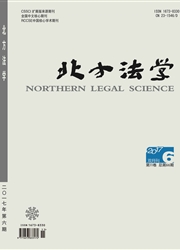

 中文摘要:
中文摘要:
对于美国宪政结构中司法审查与民主的悖论问题,西方学界致力于改造传统多数主义的民主观念并提出相应的宪法解释技术来论证司法审查的正当性,这表现为伊利的程序性民主与司法监督、德沃金的合宪性民主与道德解读、波斯纳的精英式民主与实用主义审判、哈贝马斯的协商式民主与程序主义司法等诸多具有代表性的理论范式。事实上,司法审查的正当性证成不能仅仅依靠重构民主观念的外部论证来实现,还需要依靠法官精湛的判决论证技术的内部路径来提升。这说明司法审查与民主的悖论是宪政结构中构成性的内在矛盾,而司法审查与民主的互动则是宪政具有生命力的内在源泉。
 英文摘要:
英文摘要:
Western academic take effort to transform the democracy concept of classical majoritarian- ism, and put forward corresponding constitutional interpretation technology to prove the justification of judi- cial review, for the paradox between judicial review and democracy on American constitution system. It be- haves many representative theoretical paradigms such as procedural democracy and judicial supervision pres- ented by John Hart Ely, constitutional democracy and moral interpretation by Ronald M. Dworkin, elite de- mocracy and pragmatic adjudication by Richard Allen Posner, deliberative democracy and procedural justice by Jtirgen Habermas and so on. In fact, the approaches to the justification of judicial review can not only depend on the restructure on the external justification of democracy, but also rely on the internal justification of the decision reasoning technology by judges. It explains that the paradox between judicial review and de- mocracy is a structural internal contradiction on constitution system, while the interaction between judicial review and democracy is a vital intrinsic fountainhead on it.
 同期刊论文项目
同期刊论文项目
 同项目期刊论文
同项目期刊论文
 期刊信息
期刊信息
